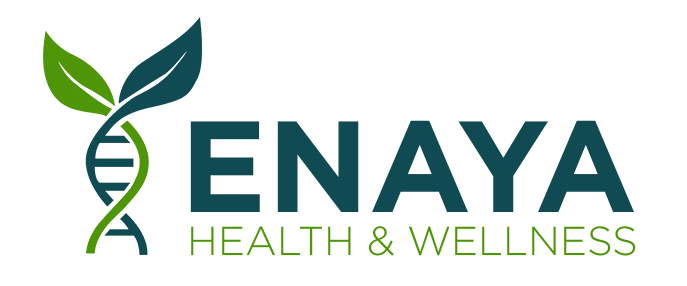
What You Need to Know About Adrenal Fatigue Part II
Once upon a blogpost, our writers ripped the mask of a silent medical enemy and dragged its face into the unflattering limelight. We acquainted you with adrenal fatigue.
Perhaps you encountered that name in fleeting conversation, or while flitting from the doctor’s office to your car—someone you know is battling this enemy and you’re wondering how they’re doing it. You’re wondering, does adrenal fatigue even exist? Or is it some hyperbolic form of laziness and unrestrained gluttony draped as a diagnosable health condition? Adrenal fatigue is, in actuality, much more than a mediocre lifestyle; it’s when our adrenal glands crash and collapse beneath ongoing, compounding stressors, compromising our body’s healthy production of stress-fighting hormones; it’s when the good guys lose to the bad guys and we’re left catching our breath behind the darkest alleys of life.
Adrenal fatigue is real and it’s not pretty.
So why don’t several medical doctors recognize adrenal fatigue as a serious diagnosis?
It is true: most conventionally trained physicians don’t recognize adrenal fatigue as a real problem. Blood tests for these fatigued patients often reflect normal hormone production. Cortisol levels hover just above the healthy threshold—just enough to evade the common hormone-related diagnoses, such as Addison’s Disease or Adrenal Insufficiency (rare conditions in which the adrenals cannot produce enough hormones on their own and life-long steroid replacement therapy is usually required). So their doctors send them off with a chill pill prescription: “Just relax more,” they say. “Take it easy and you’ll feel better.”
What is the best way to test for Adrenal fatigue?
What is superior to blood tests, measures your cortisol levels several times a day, and is often accompanied by a “stick out your tongue and say ahh”?
Saliva tests. The results from these tests are like a log mapping your 24-hour hormone-secretion cycle. The functional and integrative medicine practitioners who make use of these tests collect your spit in vials at four points during the day to track your cell tissues’ hormone levels, enabling them to correlate your physical symptoms with medical data. More accuracy and no finger pricks required—how’s that for a medical hack?
How do you reverse fatigue and restore adrenal function?
As with all worthy feats in life, this one comes with no magic pill, no quick fix drink to whisk you back into recovery. A balanced life demands a balanced lifestyle, and your persistent initiative to overcome. Here are our three MUST DO’s for beating adrenal fatigue:
#1 Declutter your relationships.
Spring is upon us, a season that invites warmer weather, rain showers, and the human impulse to declutter. Skip the dusty books and untouched clothes this year; your decluttering party will take on a new approach, and you will have your adrenals thank you for it later. We can all endure our fair share of Debby Downers and Negative Nancys. But if your exhausted adrenals have left you in a sinkhole of symptoms, those Facebook “friends—whose only contribution to your feed is Grey’s Anatomy-level drama—need to exit your social stage. So do those casual acquaintances with trademark cynicism, filling every silence with a slanderous remark. They’re not serving you any good. If anything, they’re draining whatever traces of energy you have left to function. Here is your relationship decluttering checklist, at a glance:
- Eliminate or minimize toxicity in your relationships.
- Resolve ongoing conflicts with the people in your life whom you love.
- Kindly set boundaries with negative/angry family members whose company is inevitable.
- Unfollow and/or unfriend accounts on your social media feeds whose messages, attitudes, and comments serve no purpose but to spread negativity.
- Build your social circle with kind, caring, and respectful individuals (even if that means making new friends!).
#2 Clock in some beauty sleep!
Let us let you in on a sleeping secret: somewhere between 10 p.m. and 2 a.m., our bodies repair and regenerate themselves in preparation for the stressors ahead. Our adrenals, too, work their hardest during that time block. Exercise a bit of discipline and train yourself to sleep earlier. Calm the urge to binge-watch your latest Netflix obsession, and in hours leading up to bed, dim the lights and put away your electronic devices to maximize melatonin production. Here is your beauty sleep checklist, at a glance:
- Commit to a relaxing activity before bed (yoga, meditation, praying, and stretching all help quiet your mind and prime your body for a good night’s rest).
- Keep your coffee and caffeinated tea breaks before 2 p.m.; anything after will disrupt your body’s circadian rhythm.
#3 Healing foods for your body and soul.
Historically, humans sought remedy from sources beyond a doctor’s prescription. “Let food be thy medicine,” they said. This ancient mantra spawned an alternative healing approach called “lifestyle medicine.” It is especially popular with preventable, lifestyle-related illnesses. Without shunning Western pharmaceuticals, holistic healers use food plucked from earth herself to restore balance to their patients’ bodies. Just as we are made from earth, we need her seasonal harvests to thrive and keep illness at bay. So here is your fatigue-warding, adrenal-restoring food checklist, at a glance:
- Eat small meals often. Symptoms of adrenal fatigue spike when patients skip a meal or forgo eating for an extended number of hours.
- Decorate your plate with rainbow-colored food for optimal nutrition. When planning your meals, alternate between a variety of lean protein (mostly plant-based with the occasional sustainably-sourced meat), complex carbs with a low glycemic index (quinoa, brown rice, potato medleys, whole wheat, beans, and legumes—all of which keep your blood sugar levels steady and release a constant flow of energy), healthy fats (avocados, olives/olive oil, nuts and seeds), and organic produce.
- Consume more salt. Fatigued adrenal glands trigger low sodium levels and low aldosterone production, leaving patients craving salt like it’s nobody’s business. So eat salty! Don’t worry about the risk of high blood pressure; that doesn’t apply with adrenal fatigue (but feel free to wear a blood pressure monitor for good measure). If anything, an extra dash of salt on every dish is both essential and therapeutic to your adrenal recovery.
If adrenal fatigue is your current reality, know this: restoring your adrenal glands won’t happen overnight, just as they didn’t crash overnight. Be patient when making these changes; lifestyle medicine takes time. The feelings of rejuvenation, a good night’s sleep, and endless motivation to tackle your biggest, wildest dreams are just around the corner. As always, we’re rooting for you along the way.
Missed part one of this blogpost? Learn more about Adrenal Fatigue here.



Recent Comments